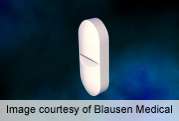Adverse drug events were more likely to be present upon admission than to originate during the stay for U.S. hospitals in 2011, according to a statistical brief issued by the Healthcare Cost and Utilization Project.
(HealthDay)—Adverse drug events (ADEs) were more likely to be present upon admission than to originate during the stay for U.S. hospitals in 2011, according to a statistical brief issued by the Healthcare Cost and Utilization Project (HCUP).
Audrey J. Weiss, Ph.D., and colleagues presented data on ADE rates from 32 states participating in HCUP, which is sponsored by the Agency for Healthcare Research and Quality.
The researchers found that, in 2011, in U.S. hospitals, ADEs were three times more likely to be present upon admission than to develop during the hospital stay. Among all ADEs, antibiotics and anti-infectives were the most common general causes of ADEs that were present on admission (23.4 percent) or originated during the hospital stay (28.0 percent). ADEs for antidepressants and central nervous system (CNS) drugs were more likely to be present on admission, whereas ADEs for CNS depressants and anesthetics were more likely to develop during the stay.
"Across all general causes, ADEs were substantially more likely to be present on admission than to originate during the stay," the authors write.
More information: More Information
Copyright © 2013 HealthDay. All rights reserved.




















